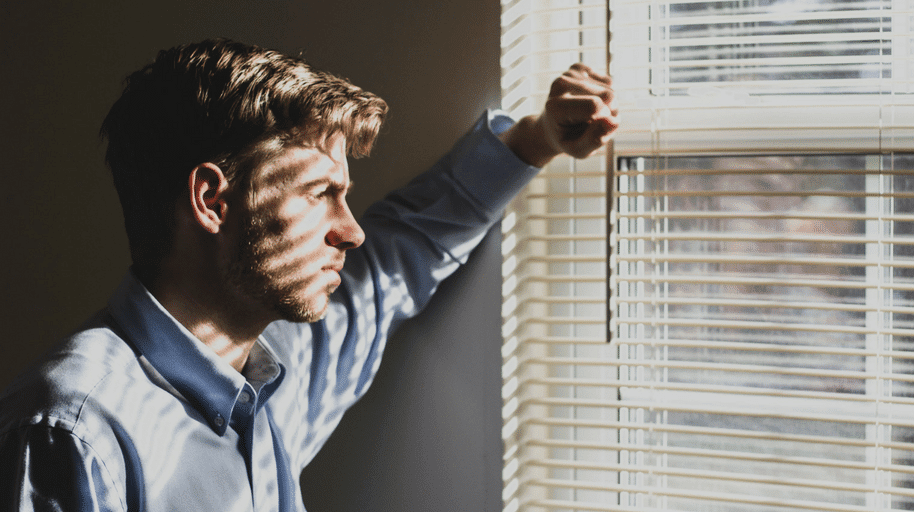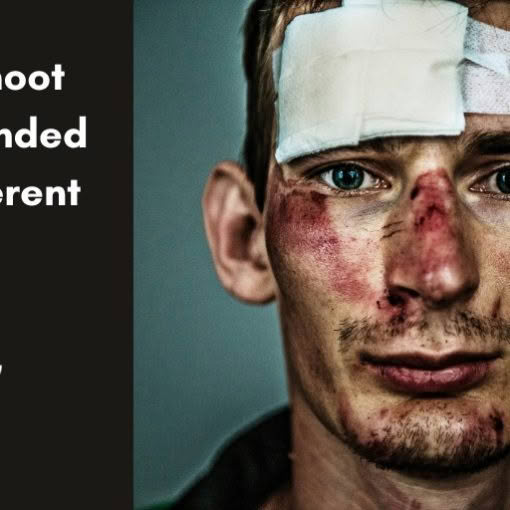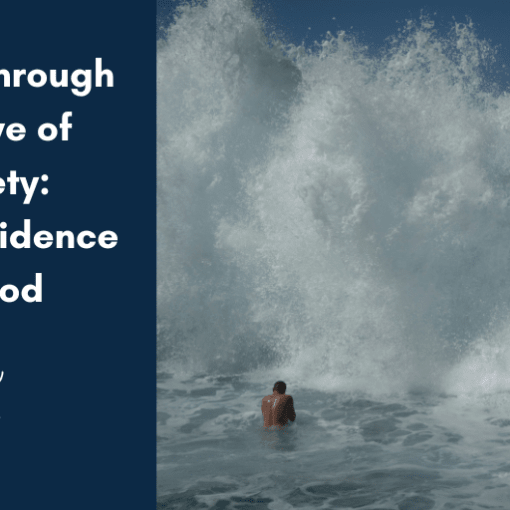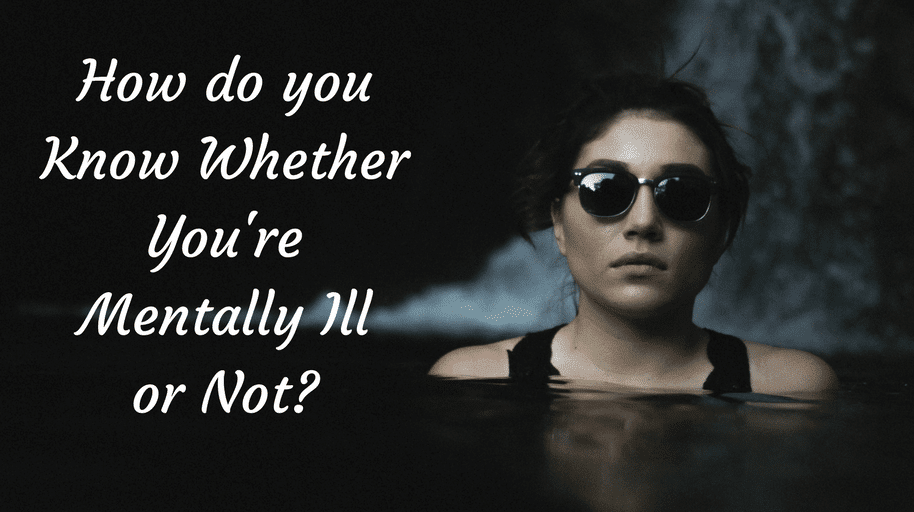Ever feel like you’re all of a sudden gasping for air? Heartbeat racing out of control? Breaking out in a cold sweat? Or, clenching your teeth so hard you feel like your jaw might lock in place? These can be effects of social anxiety.
More importantly, I have friends, acquaintances, and members of my extended family who have mild to moderate social anxiety.
So, as a fellow human being who has experienced anxiety myself, I can vividly recall certain things that happened and what some people said, as a result of social anxiety.
Social Anxiety: It’s a big deal
I especially remember a couple of comments that struck me hard—and, the comments were not even specifically directed my way.
“What’s the matter with you?” “Buck up, will you?” “You don’t know what real stress is like.” “What, again?” and “Ah, it’s no big deal.”
But, it is a big deal. To someone with social anxiety, that is.
People who would say things like this did not understand the feelings, the emotions, the tightness in the chest or the throat, uncomfortable feelings in the stomach, sudden dryness in the mouth.
Could be, they had very little way of knowing what it was (and is) like.
I’m not talking about the kinds of things the majority of people feel before delivering a speech or an important presentation at work. (Many of us have butterflies in the stomach before a big event like that.)
What about joining a large group of people you don’t know? (What will they think of me? I’m embarrassed already, and I haven’t even walked into the room yet.) Or, when going to a big dance or elegant reception. (Remember high school prom, or the first fancy parties you went to?)
The Mayo Clinic website characterizes social anxiety disorder as
“fear and anxiety [which] leads to avoidance that can disrupt your life. Severe stress can affect your daily routine, work, school or other activities.”
Avoiding big parties, large groups, work occasions, eating at restaurants, even family celebrations can make a person with social anxiety feel like even more of a failure or outcast, with low self-esteem and feelings of worthlessness, helplessness, and negative self-talk.
What’s someone with social anxiety to do, then? (I’ll get back to that in a minute.)
I’ve been trained as a hospital chaplain. When people sometimes would ask, “What exactly does a chaplain do at the hospital, anyway?”
More often than not, my response is, “Among other things, I am a professional listener. I take the time to listen attentively, where other hospital staff so often can’t take an extended time to listen.” I have heard a lot from many, many people, in the years I worked as a chaplain.
Today, I am a local church pastor: a similar job. I’m still a professional listener. Oh, and I can pray when asked, too.
On the occasions when someone came to me—as a chaplain or pastor—feeling anxious, upset, or worried, and wishing to talk, I would try to be as welcoming and friendly as I could.
Two characteristics I sincerely would try to model would be non-judgmental and less-anxious. If I were able to display those qualities, the person I was talking to would have the opportunity to feel more comfortable and welcome.
People would tell me all kinds of things. Some people would be more formal, and others would not say much at all—I’d try to read between the lines of what they said. But regardless, I was present for them, listening to them.
Many people told me (and, still tell me) how much they appreciate that.
What has helped?
- Someone you can trust.
A friend or acquaintance who is sympathetic and understanding is worth their weight in gold. Make sure it is okay to tell them things. And if it is, then you can tell them selected things. - A competent, attentive therapist or counselor
- A helpful group
A group, as in group counseling, might be supportive and encouraging.
Be sure you know that the group or individuals understand confidentiality and privacy concerns.
What actions might reduce anxiety
- Eating and drinking in a healthy manner is always a good thing to do. Extra sugar and caffeine can have negative effects. They might send emotions out of control. Common-sense limits on both food and drink might be a prudent idea. While drinking alcohol can seem to be a quick fix, it won’t permanently manage social anxiety.
- Finding a friend who also has social anxiety might be a real help. (The buddy-system is great, in a lot of ways. Not just for field trips in grammar school or activities at day camp!) The tendency to isolate can be negative. Sure, it might be the easiest thing to do, but it can be a lonely thing to do, too. Making certain that your friend or buddy is engaged, safe, or at your side gets your thoughts and ideas off yourself, too. Most anything to get one’s mind off negative, defeating, “stinking thinking” and to focus attention outwardly is positive and helpful.
- Relaxation techniques. Relaxation, prayer, meditation, and yoga classes are all useful tools to help. Pets are wonderful companions, too! Always loving and caring.
- God. Some people think of God as their Higher Power. However a person thinks about the Holy, it is something outside of oneself, something greater and more powerful. Caring, loving, welcoming, protective. For countless centuries, people have found comfort, encouragement, and support from the Holy. If you are interested, find a religious leader or spiritual person, if you want to find out more.
Sometimes, a person who is anxious just can’t find relief, no matter what they try. This happens, and people who this happens to are not weird, or crazy, or somehow damaged in some way. No, anxiety is also a medical condition. I encourage anyone who is concerned to visit their doctor. Always a prudent thing to do!
Quotes to consider
- It’s sad, actually, because my anxiety keeps me from enjoying things as much as I should at this age. Amanda Seyfried
- Neither comprehension nor learning can take place in an atmosphere of anxiety. Rose Kennedy
- I’ve suffered through depression and anxiety my entire life. Lady Gaga
Questions to answer
- What do you do when you start to feel anxious? Can you feel the anxiety gradually coming on?
- Track your anxiety. (Try an anxiety journal.) What makes you especially anxious?
- Does anything lessen your anxiety? Does being with friends or family, or pets help you?
Read further
- When anxiety is a speedy stream
- What is Social Anxiety?
- Mayo Clinic – Social anxiety disorder (social phobia)
Elizabeth Jones
Image cc: mauro mora
Rev. Elizabeth Jones currently serves as pastor at St. Luke’s Christian Community Church, Morton Grove, Illinois. She blogs at Pastor, Preacher, Pray-er and records the podcast “Talking About Faith” on the GAB Radio Network. Follow her on Twitter at @chaplaineliza





